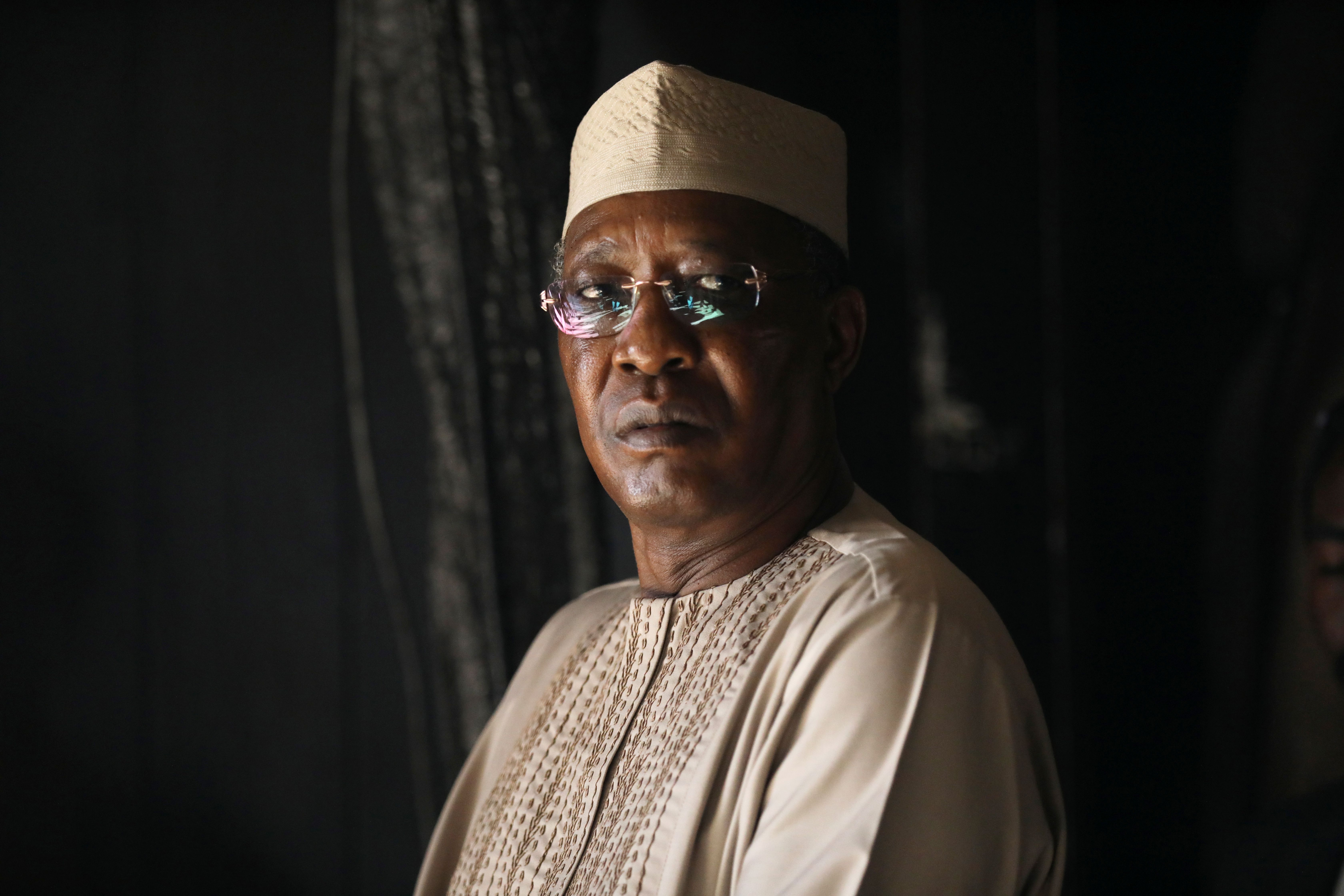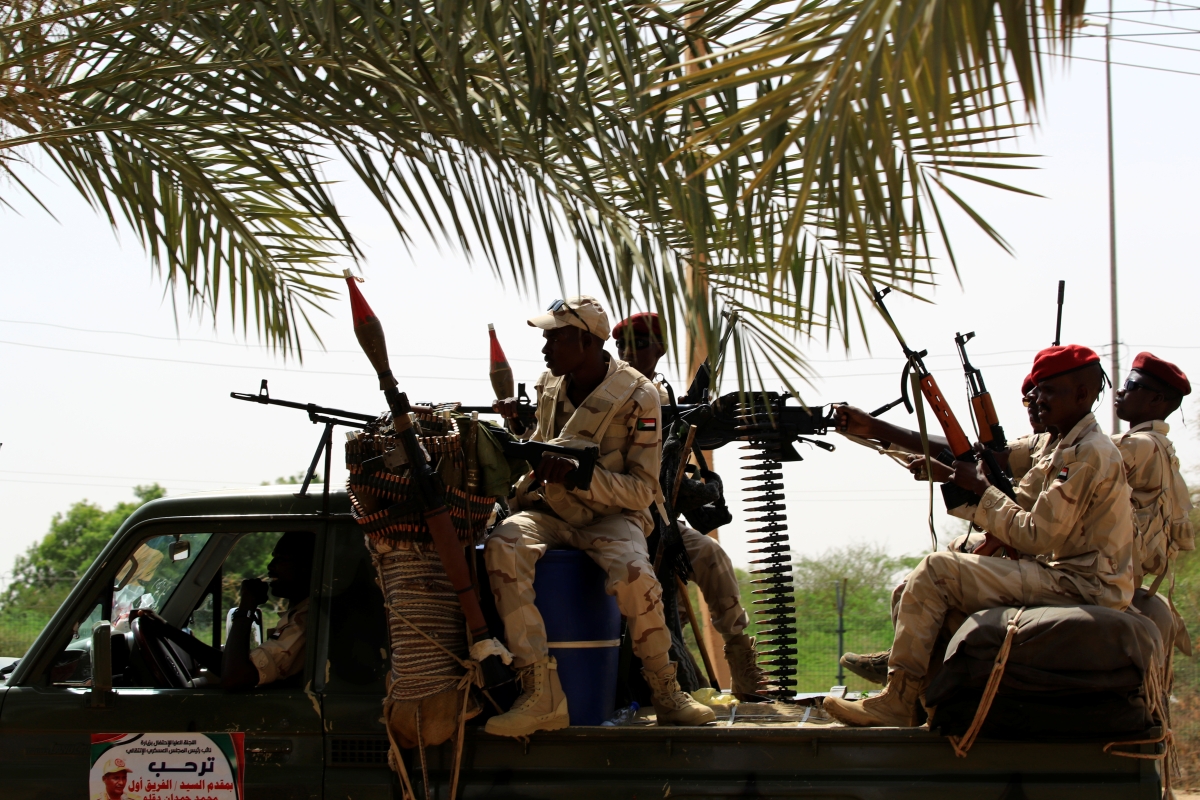Hungary Sending Troops to Chad
During Chadian President Mahamat Idriss Déby’s visit to Budapest in September, the parties confirmed plans to send 200 Hungarian troops to the country on the basis of a bilateral agreement. The purpose of the mission remains unclear, although formally it is to support counter-terrorism efforts, while in Hungary, the government presents it as preventing irregular migration. In other corners, there is also concern about possible Hungarian-Russian cooperation in Africa.
.png) Terrance Payton / Zuma Press / Forum
Terrance Payton / Zuma Press / Forum
Hungary in Africa and the Sahel
Hungary’s activity in Africa has so far been limited and most visible in the area of academic cooperation. In recent years, it has been influenced by conservative ideas and approaches to migration dominating the pro-government domestic discourse. A secretariat dedicated to assisting “persecuted Christians” has been operating at the Prime Minister’s Office since 2017. A similar profile was given to the development agency Hungary Helps, suggesting the selection of beneficiaries according to a religious key rather than needs. In Africa, the agency has so far been most active in Uganda and Nigeria. In European forums, on the other hand, Hungarian officials, such as Foreign Minister Péter Szijjártó, have stressed that the priority of Viktor Orbán’s government is to “help African countries reduce migration”.
Hungary had been trying for several years to build a military presence in the Sahel, a volatile region that is both a transit point and source of migration towards Europe. In late 2021 and early 2022, it led preparations to join the Takuba, a French-led coalition of special forces in Mali. However, it was suspended after the Malian junta invited the Wagner Group to the country before the deployment of an 80-strong Hungarian contingent was completed. Subsequently, Hungary, with the active participation of Gaspar Orbán, the prime minister’s son, held talks with the Niger authorities about possible military cooperation in the context of EU operational involvement. This was also then prevented by political change: in July 2023, a group of officers ousted President Mohamed Bazoum. Hungary then turned its attention to Chad. In November 2023, the defence ministers of the two countries concluded a preliminary agreement in which Hungary is to send 200 soldiers to Chad. It was approved by the Hungarian parliament as a counter-terrorism-oriented mentoring and training mission.
Bilateral relations have developed rapidly since then. Among other things, Hungary appointed a special envoy for the Sahel—László Eduárd Máthé, previously ambassador to Kenya, among other posts—who is in constant contact with the Chadian authorities. The Hungarians opened an embassy in the capital N’Djamena and the first African office of Hungary Helps, which is expected to operate with funds of $200 million. Hungarian initiatives are being widely promoted, for example, its agreements in the area of agriculture (camel milk processing programme to strengthen food stability) and education. Flexibility in the Hungarian approach is increasing and in recent weeks Hungary Helps has been channelling aid on an ongoing basis to regions in Chad struggling with the effects of floods. In September, Chadian President Déby visited Budapest. During this visit, the Hungarian military plans were confirmed and framed in the context of cooperation to reduce migration.
The planned mission faces organisational problems, however. In Chad, there is not the infrastructure to host the Hungarian soldiers. On 21 October, the Hungarian military attaché who was supposed to oversee the deployment, Lt. Col. Imre Vékás-Kovács, was found dead in a hotel room in N’Djamena after complaining of illness.
Chad’s Motivations in the Regional Context
Chad is a state whose relative stability has been considered crucial to the non-proliferation of conflicts in the Sahel. In the last decade, the Chadian military has demonstrated, among other things, effectiveness against jihadists in Mali and in the Lake Chad Basin, where it has conducted operations against Muslim extremists as part of a regional coalition involving Nigeria, Cameroon, Niger, and Benin. For this reason, France and others supported Chadian dictator Idriss Déby in recent decades and, after his death in 2021, supported the formation of a new junta led by his son, Mahamat. However, this has not prevented relations from deteriorating in recent times. Since the beginning of this year, playing on widespread anti-French sentiment in the Sahel, Mahamat Déby has developed a cooperative relationship with Russia, and before the elections in May this year, he expelled U.S. troops from the country. The French announced a reduction of forces in Chad from around 1,000 to around 200. The arrival of the Hungarians would allow the Chadian authorities to demonstrate to their own people their effectiveness in diversifying the country’s partnerships.
For Chad, the most important regional factor is the war in Sudan. Chad has taken in more than 600,000 refugees from that country (mainly from the Darfur region). At the same time, however, it is also fuelling the war by participating—in exchange for support from the United Arab Emirates (UAE)—in the supply of arms to the Rapid Support Forces (RSF) militias carrying out ethnic cleansing in Sudan. This policy threatens to cause a rift within the Chadian armed forces, which is largely composed of soldiers from the Zaghawa ethnic group, who sympathise with their compatriots persecuted by the RSF in Sudan’s Darfur. This conflict is escalating. Déby recently appointed Ali Ahmat Aghabache, who is close to the RSF, as the new security minister, which will stiffen the existing policy. As a result, internal divisions are intensifying. Chadian Zaghawa are enlisting to fight against the RSF in Sudan. If they return, they may turn against the Chadian authorities. In this context, the Chadian leaders will expect Hungarian forces to help secure the regime against possible upheavals, similar to what the Russians are doing for the authorities of the Central African Republic (CAR).
Hungary’s Motivations
The declared anti-terrorist nature of the mission suggests the possibility of involvement within the Lake Chad area or in the borderlands with CAR and Cameroon, where kidnappings for ransom are common. However, it is doubtful that the Hungarians would seek to participate in direct combat (e.g., the current Chadian operation against jihadists), which would expose them to casualties that would be difficult to justify to the Hungarian public. Nevertheless, the Hungarians hope that their presence in Chad will allow them to increase the capacity of their forces in conflict zones.
Although the Hungarians are positioning themselves as a representative of the West in a region where the EU or the U.S. are losing influence, this is met with suspicion in France, for example. There is widespread concern among the country’s military leadership and experts that Hungary’s actions may be coordinated with Russia, with whom Orbán is cooperating politically, for example, by working to weaken EU sanctions against Russia or by blocking EU support for Ukraine. This dimension is also present in Africa: in Equatorial Guinea in October, shortly after the deployment of the Russian Africa Corps there, Szijjártó emphasised that Hungary and Africa belong to the global “anti-war” majority (doublespeak for those against support for Ukraine). While evidence of cooperation in Chad is lacking, there are apparent similarities in the Russian and Hungarian approaches to strengthening their own international position by sending expeditionary forces to third countries. Hungary’s increasing presence in Chad is conducted in a similarly non-transparent manner, involving the highest political factors and—to a large extent—bypassing the roles of the Foreign Ministry, parliament, or wider public debate.
Involvement in Chad allows the Hungarian authorities to rhetorically demonstrate that the state is acting decisively in hedging against irregular migration. In the context of plans towards Mali, the then Chief of Staff Romulus Ruszin-Szendi emphasised that African jihadist groups could appear “even on Hungary’s southern borders”. Similar rhetoric is present with regard to Chad. Prime Minister Orbán insisted in September that migration from Africa to Europe “cannot be stopped without the Sahel states”.
Conclusions and Perspectives
The rapprochement between Hungary and Chad is taking place in a complex regional context that threatens the stability of the African country and the power of President Déby. This may force a revision of ambitious plans, as was the case with Mali and Niger, especially since, due to logistics, as well as the death of attaché Vékás-Kovács, the arrival of troops is not expected in the coming months.
On the political side, the Hungarian approach is based on assumptions that have not worked in other African countries, such as Niger, whose authorities broke an agreement with the EU on border control that resulted in an economic crisis. The experience of instrumentalisation of African states fuels sovereigntist sentiments in them, resulting in the expulsion of foreign military missions. However, Hungary’s development efforts, such as work to increase food stability, are promising. Helping Sudanese refugees in eastern Chad and facilitating their ability to return safely after the war also is important.
It is doubtful whether Hungary will succeed in attracting other European countries to join its mission. It is also unclear what added-value the instructors could bring to Chad, a country with a great deal of combat experience in a specific theatre of operations, where it has been standard since the 1980s to use “technical”, originally civilian vehicles (usually pick-up trucks) as the primary means of transport and fire support (thanks to their integration with medium-calibre small arms). The Hungarian armed forces also do not seem to need this kind of experience, although they can expect to increase the readiness of at least some of their units as a result of involvement in a logistically demanding mission.
It is unrealistic to expect the deployment of 200 Hungarian soldiers to significantly increase the control of migration in the region, or even within Chad itself. However, the apparent radical shift in the approach to migration policies towards externalising operations may be conducive to increasing EU sympathy for Hungary’s military plans in Africa, which are increasing and signalling, for example, a willingness to return to talks with Niger on the issue. It is also likely that Donald Trump, who as president could potentially want to visit Budapest soon after his inauguration in January, will point to the Hungarian initiative in Chad as an example of out-of-the-box thinking in securing borders. The most significant outcome of the Chadian mission may therefore turn out to be the aspect of Orbán building up Hungary’s image as an independent, assertive global player.





